راه دشوار و باریک پایان دادن به مجازات اعدام در ایران | عمادالدین باقی

عمادالدین باقی به مناسبت روز جهانی مبارزه با مجازات اعدام مقالهای در روزنامهی یک بنیاد بین المللی حقوق بشری نوشته است [لینک] که ترجمهی آن به همراه توضیح این فعال حقوق بشری در پی میآید:
مقاله زیر پیرو درخواست «بنیاد مارتین آنالز» (بنیادی متشکل از ده نهاد بین المللی حقوق بشر) به مناسبت روز جهانی مبارزه با مجازات اعدام نوشته و به زبان انگلیسی در سایت و روزنامه این بنیاد منتشر شده است. در اینجا متن فارسی تقدیم می شود.
تقدیم به «مهسا»ها
راه دشوار و باریک پایان دادن به مجازات اعدام در ایران
جواد در نزاع با فردی که مزاحم همسرش شده بود ناخواسته مرتکب قتل شد. او چندسال بود گاهی از زندان برای پیگیری کارش با ما تماس می گرفت و هر روز به خانه اش زنگ می زد اما از آن سحرگاهی که اعدام شد هنوز گوش دختر ده ساله اش که به زنگ تلفن او عادت کرده بود منتظر است. این قصه مکرر خانواده های اعدام شده است.
اگرچه این دستاورد بزرگی است که نسبت به چند دهه پیش که در اکثریت کشورهای جهان مجازات اعدام اجرا می شد اکنون در بیش از دو سوم کشورهای جهان این مجازات لغو و یا متوقف شده است اما به قول قرآن کشتن یک نفر برابر با کشتن همه بشریت است(سوره مائده آیه۳۲) لذا برای ما همچنان این موضوع در درجه بالای اهمیت قرار دارد به ویژه که بسیاری از کشورهایی که این مجازات را اجرا می کنند کشورهای اسلامی هستند. در بعضی از کشورهای توسعه یافته گرچه آمار اجرای اعدام خیلی پایین است اما صرف وجود آن موجه کننده وجود مجازات در جوامع پراعدام است و آنها در پاسخ به انتقادات می گویند این نشانه عقب ماندگی نیست! ببینید ژاپن و بعضی ایالت های امریکا هم مجازات اعدام دارند!
جهان در سال ۲۰۲۱ شاهد صدور حداقل ۲۰۲۵ حکم و اجرای حداقل ۵۷۹ مورد اعدام در ۱۸ کشور بود. این کمی شبیه آمار تلفات جنگی است آن هم جنگی یک طرفه و بی صدا. معنایش این است که ممکن است در شرایط بحرانی و خاصی غول مجازات اعدام دوباره از شیشه بیرون بیاید.
ایران، از کشورهای باستانی با تمدنی کهن، متاسفانه یکی از چهار کشوری است که در چهل سال اخیر بالاترین آمار را داشته. هرچند برخلاف نص صریح قانون که باید اجرای احکام اعدام اطلاع رسانی شود آمار را به طور رسمی، کامل و شفاف اعلام نمی کنند اما اطلاعات غیر رسمی حاکی از تعداد بیشتری از اعدام های اطلاع رسانی شده است زیرا از طریق زندانیان از اجرای اعدام هایی مطلع می شویم که اطلاع رسانی نشده اند.
اگر در ایران دو موضوع را از هم تفکیک کنیم (که البته در واقعیت پیوند محکمی با هم دارند) بهتر است: یکی اینکه کشورهای اسلامی از جمله ایران به دلیل وجود این تصور که مجازات سلب حیات در جرم قتل جزو آیات کتاب مقدس است بنابراین مخالفت با آن مخالفت با قرآن و دین محسوب می شود در نتیجه حمایت مذهبی و اجتماعی برای این مجازات وجود دارد.
این غیر از اعدام های سیاسی است که برای مثال در دولت سیسی در مصر در سال ۲۰۲۱ تعداد ۴۹ نفر و در سال ۲۰۲۲ تعداد۲۳ نفر محکوم به مرگ شدند. و غیر از احکامی است که برای مرتد شده ها صادر می شود که در ده سال گذشته در ایران دست کم برای ده نفر حکم صادر شده است.
مسئله دوم اعدام هایی است در طول سال اجرا می شود. در هر دو مورد شاهد تغییرات و پیشرفت هایی هرچند کُند در چند سال اخیر بوده ایم. در مورد اول ۲۰ سال پیش فضا سخت و تنگ بود که وقتی من مقاله ای در روزنامه نشاط درباره اعدام نوشتم روزنامه توقیف شد و من به عنوان نویسنده و سردبیر و مدیرمسئول روزنامه محکوم به زندان شدیم اما بعد از آن همچنان به نوشتن در این زمینه ادامه دادم تا ثابت کنم از نظر دینی هم می توان هر نوعی از مجازات سلب حیات را پایان داد و این کارهیچ منافاتی با دین ندارد. در نتیجه ادامه و تکرار این بحث، امروز شرایط به گونه ای شده است که مطالبی بسیار مفصل تر و انتقادی تر از آن مقاله ۲۰ سال پیش در مطبوعات نوشته می شود ولی با آن واکنش شدید مواجه نمی شود که آخرین نمونه آن نامه بلندی به رئیس قوه قضاییه در انتقاد از اعدام برای محکومان زیر۱۸سال بود که در رسانه های داخل ایران منتشر شد(وبسایت های جماران نیوز، انصاف نیوز و نیز روزنامه اعتمادAugust 7 و روزنامه سازندگیAugust 8, 2021). حتی دو سال پیش برای اولین بار برای کتاب «جان» که یک نانفیکیشن درباره نقد مجازات اعدام در ایران است از وزارت فرهنگ و ارشاد مجوز چاپ گرفتم و منتشر شد. البته هنوز تا عادی شدن انتشار آزادانه و وسیع تر مباحث انتقادی در این زمینه فاصله زیادی داریم. نظرسنجی ها نیز نشان می دهند که هنوز حدود ۶۰ درصد از افکار عمومی از مجازات اعدام حمایت می کنند اما این درصد نسبت به گذشته کاهش یافته است.
ازسوی دیگر مجازات اعدام در عمل همچنان ادامه دارد با این تفاوت که قانون اعدام در جرایم مواد مخدر در ژانویه۲۰۱۸ اصلاح شد و تعداد محکومان اعدام در جرائم مواد مخدر بسیار کاهش یافت ولی در جرایم دیگر به ویژه در قتل عمد، همچنان مجازات اعدام وجود دارد اما در درون خود قوه قضاییه نهادهای صلح و سازش فعال تر از گذشته شده اند و آمار کسانی که از طریق گرفتن بخشش شاکیان از اعدام نجات پیدا کرده اند نسبت به گذشته افزایش چشمگیری داشته است. با اینحال آمار اعدام بالای ۳۰۰ نفر درسال هولناک است.
[وضعیت در جوامع مختلف یکسان نیست و هرجایی روش های خودش را با «تحلیل مشخص از شرایط مشخص» می طلبد، بنابراین] ما در انجمن پاسداران حق حیات (که اجازه فعالیت رسمی ندارد) معتقدیم باید تلاش کرد و امیدوار بود و به جای پروپاگاندا و جدال در سه موضوع فعالیت می کنیم:
۱-کار فکری و اقناعی از طریق سخنرانی، مناظره، مقاله و کتاب،
۲- حمایت حقوقی از محکومان به اعدام و نیز
۳- جلب رضایت و بخشش از اولیای دم. دو انجمن دانشجویی دانشگاه های علامه طباطبایی و پلی تکنیک با تولید سلسله پادکست هایی تحت عنوان«مویه» درباره مجازات اعدام، کمک مؤثری در مورد اول انجام می دهند.
با توجه به اینکه تعدادی از کشورهایی که هنوز مجازات اعدام را اجرا میکنند کشورهای اسلامی هستند و آنها با این مشکل جدی مواجه اند که تصور می کنند لغو مجازات اعدام، انکار قرآن است، نهادهای حقوق بشری در کشورهای اسلامی باید تشویق شوند که به بازنشر خوانش متفاوتی از قرآن در این زمینه بپردازند که افکار مسلمانان را برای همراهی با لغو مجازات اعدام مساعدتر میکند.
این مقاله را ۱۲ سپتامبر فرستادم که مهسا امینی زنده و ناشناخته بود. الان که بازنگری نهایی را برای انتشار انجام میدهم با حادثه تلخ مرگ مهسا در کمپ «گشت ارشاد» و برانگیخته شدن موج اعتراضات ایرانیان مواجه هستیم که ابعاد جهانی پیدا کرده و در این دو هفته بیش از ۷۰ نفر از معترضان و چند پلیس کشته شدهاند. درست در همین روزها مردم افغانستان که سالهاست در سایه شوم تروریسم قربانی میدهند سوگوار انفجار انتحاری تروریستهای داعش در کابل در یک مدرسه دخترانه از شیعیان هزاره ای هستند که ۳۲ دختر جوان کشته و ۴۰ تن زخمی شدند. در اعتراضات قبلی و حوادث مشابه در ایران و افغانستان نیز کشتههای بسیاری داشتیم.
این نشان میدهد که آمار کشتههای بدون جرم و بدون محاکمه در دنیا، بسیار بیشتر از اعدامها است. ما باید با هر نوع خشونت بجنگیم که اعدام فقط یکی از چهرهها و محصولات آن است.
The difficult and narrow way to ending the death penalty in Iran
October 14, 2022
By Emadeddine Baghi, 2009 Martin Ennals Award Laureate.
Dedicated to The “Mahsa”s:
The difficult and narrow way of fighting the death penalty in Iran
Javad unintentionally committed murder in a quarrel with the man disturbing his wife. For several years, he called us from prison to follow up on his court case and called his home every day. But since the morning when he was executed, his ten-year-old daughter, who was used to the phone ringing, is still waiting. This is a familiar story for the families of the executed in Iran.
The abolition or suspension of the death penalty in more than two-thirds of the world’s countries seems like an outstanding achievement compared to a few decades ago, when the death penalty was still implemented in most of the world’s nations. According to the words of the Quran, killing one person is equal to killing all of humanity (Surah Maeda verse 32). Despite the progress we have made, this issue is still of high importance to us, especially since many of the countries that implement this punishment are Islamic countries.
Some wealthy industrialized countries also maintain the death penalty, although the number of executions is very low. The mere existence of the death penalty elsewhere is employed as a justification for the existence of this punishment in high-execution societies. In response to criticism, they say that this is not a sign of backwardness! See, Japan and some American states also have the death penalty.
In 2021, human rights organizations such as ECPM and Amnesty tracked at least 2,025 death sentences issued, from which 579 individuals were executed in 18 countries. This is an enormous number in a one-sided and silent war. It means that in certain critical situations, the genie of the death penalty could come out of the glass again.
Iran, a country with an ancient civilization, is, unfortunately, one of the four states with the highest death penalty statistics in the last forty years. Although contrary to the explicit text of the law, which states that executions must be notified, the statistics are not officially, thoroughly, and transparently announced. Unofficial information from sources such as other prisoners indicates a higher number of unannounced executions.
It is of special relevance to distinguish two dynamics in Iran around the death penalty which have a strong interaction in reality:
First, in Islamic countries, including Iran, it is widely understood that the punishment of taking life for the crime of murder is among the rules of the Holy Quran. Therefore, opposing the death penalty is considered opposing the Quran and religion. As a result, there is religious and social support for the use of the death penalty.
Executions for the crime of murder are different from political executions. For example, Sisi’s government in Egypt sentenced 49 people to death in 2021 and 23 in 2022, apart from the sentences that are issued for apostates.
The second issue is the volume of executions carried out during the year. For both issues, we have seen changes and progress, albeit slow.
۲۰ years ago, the Neshat Newspaper was banned when I wrote an article about executions. I was sentenced to prison, and so were the newspaper’s writers, editor, and managing director. Despite this, I continued to write about the use of the death penalty in Iran, determined to prove that, from a religious point of view, it is possible to abolish it and it has nothing to do with religion.
As a result of the continuation of this debate, today the situation in Iran has evolved. More detailed and critical articles than the one I wrote 20 years ago are published in the press, without eliciting a strong reaction. For example, a letter addressed to the head of the judiciary criticizing the execution of convicts under the age of 18 was published in the media inside Iran (Jamaran News Website, Ensaf News Website, as well as Etemad Newspaper on August 7 and Sazendagi newspaper on August 8, 2021). Two years ago, for the first time, I got permission from the Ministry of Culture and Guidance to publish the book “Life,” which is non-fiction criticizing the death penalty in Iran.
Of course, we still have a long way to go until the normalization of freedom of expression and critical discussions of this subject. Surveys show that about 60% of public opinion still supports the death penalty, but this percentage is decreasing.
On the other hand, the death penalty continues in practice in Iran. One of the few achievements is that the death penalty for drug crimes was amended in January 2018, resulting in a decrease in the number of death sentences. Within the judiciary, the institutions of peace and reconciliation have become more active than before, and the number of those saved from execution through the forgiveness of the plaintiffs has increased significantly. However, the executions of over 300 persons in Iran per year are horrifying.
We, in the Guardians of Life Association (which is not allowed to operate officially in Iran), believe that instead of despair, confrontation, and hype, we should work on three priorities:
Intellectual work and persuasion through speeches, debates, articles, and books;
Legal protection for those convicted of execution; and,
Obtaining forgiveness of the plaintiffs.
In Iran, academia plays a significant role in raising awareness of the elimination of the death penalty. Two student associations from Allameh Tabatabai University and the Amirkabir University of Technology produced a series of podcasts entitled “Mouyeh,” meaning “moaning” about this subject.
In conclusion, Islamic countries that still implement the death penalty are facing the severe challenge of overcoming the belief that the abolition of the death penalty is a denial of the Quran. Human rights institutions in Islamic countries should be encouraged to disseminate a different reading of the Quran in this context, which would make it more favourable for Muslim minds to support the abolition of the death penalty.
This article was first written when Mahsa Amini was alive and unknown. She was arrested for not wearing her hijab correctly, according to the interpretation of the Quran which the ‘morality police’ claim to apply. Now, we face the aftermath of her tragic death in the “Gestht Irshad”, which sparked a wave of protests by Iranians and gained international attention in the last weeks. More than 70 protesters and several policemen have been killed.
Along with the death of Mahsa, these very days other significant developments have occurred in the region. The people of Afghanistan, who have been living under the sinister shadow of terrorism for years, are mourning the suicide bombing of ISIS terrorists in a Hazara Shia girls’ school in Kabul, which killed 32 young girls and injured 40 others. ISIS likewise claims it acts out in violence in order to accomplish its interpretation of the Quran. Iran and Afghanistan have experienced similar incidents before. Today, these societies continue demanding their government’s justice and accountability for the victims. This shows that the number of people killed without a crime and without trial in the world is much more than in executions. We must fight against all kinds of violence, of which execution is only one of its faces.
انتهای پیام
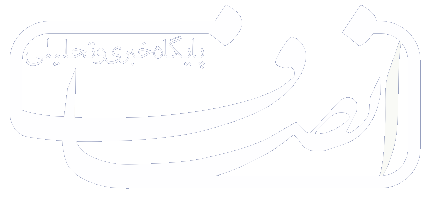


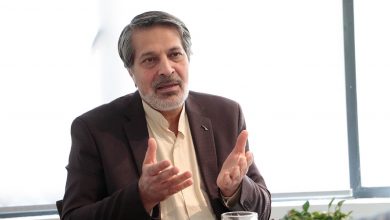
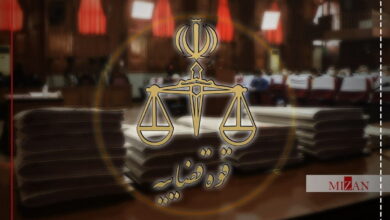
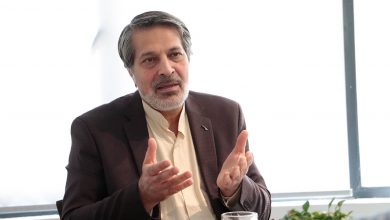
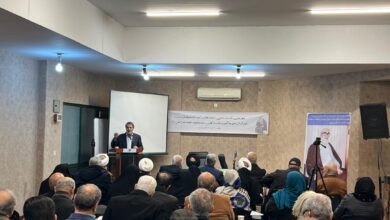
برای اثبات نظرشون از داستانی احساسی و مربوط به غیرت استفاده میکنند ولی نمیگن با کسانی که از روی شرارت و بیناموسی مرتکب قتل میشوند چگونه باید برخورد شود؟
زندانی شوند یا اعدام تا کسی جرات کشتن بخاطر قلدری را نداشته باشد
کسیکه که بخاطر ناموسش مرتکب قتل میشود قاضی باید رعایت انصاف و عدل رابکند و با تشخیص درستش و شرایط مجرم را مجازات کند
بخش آخر مقاله، موصوع اعدام چه ارتباطی با فوت مهسا امینی و حادثه انتحاری افغانستان داشت؟